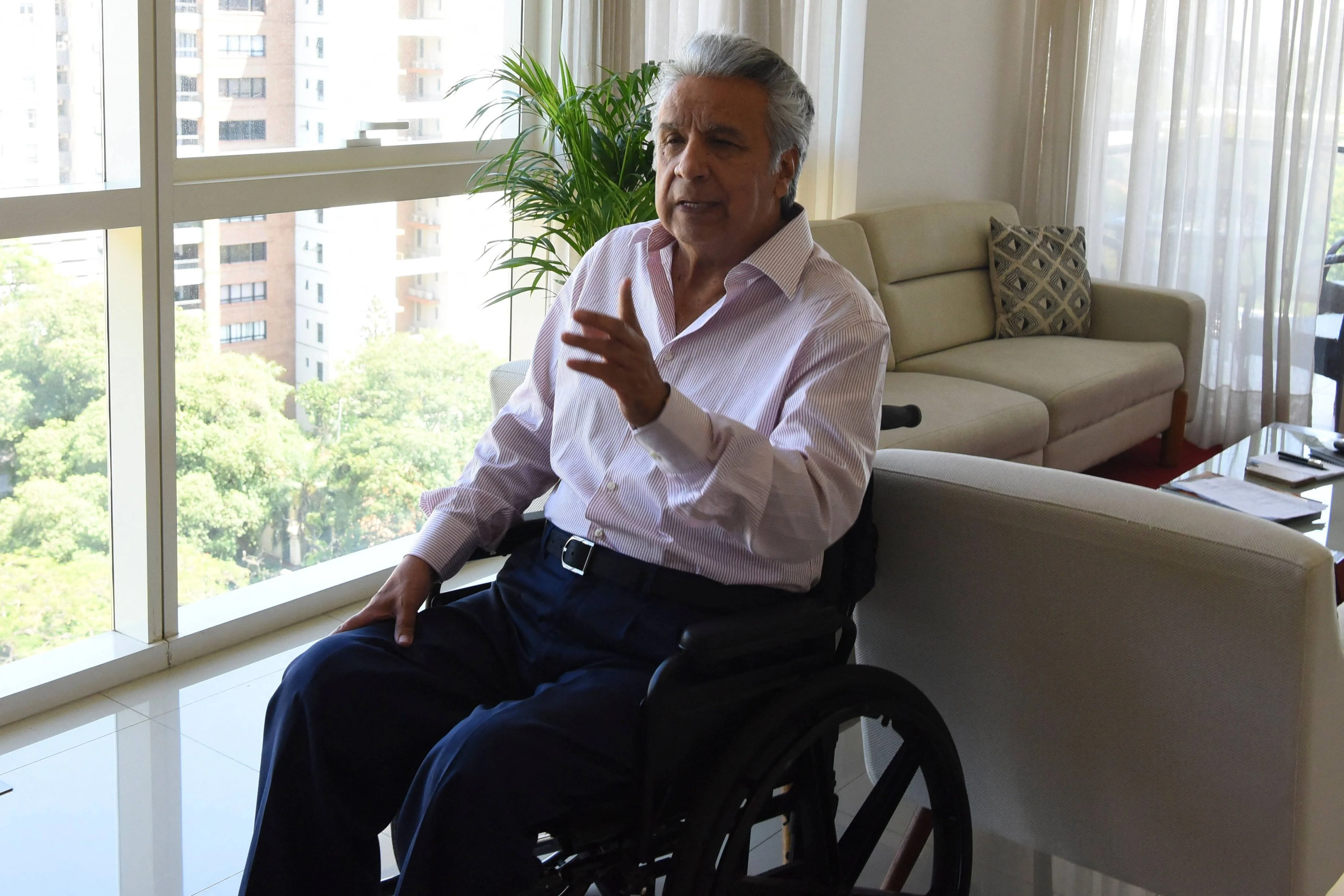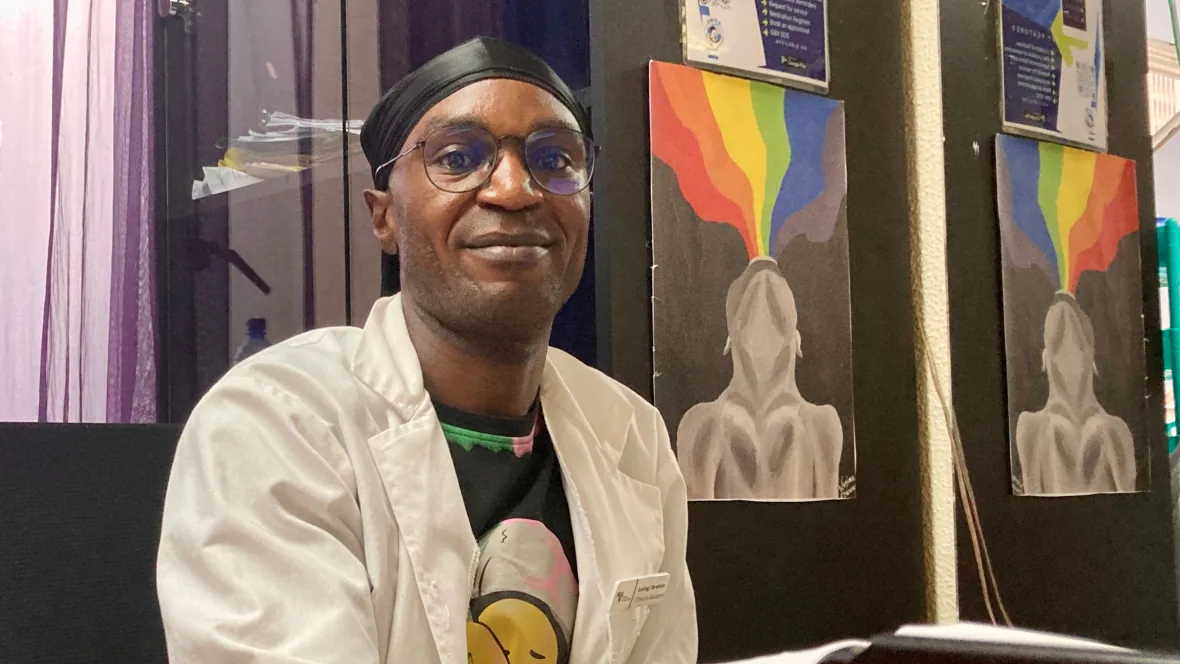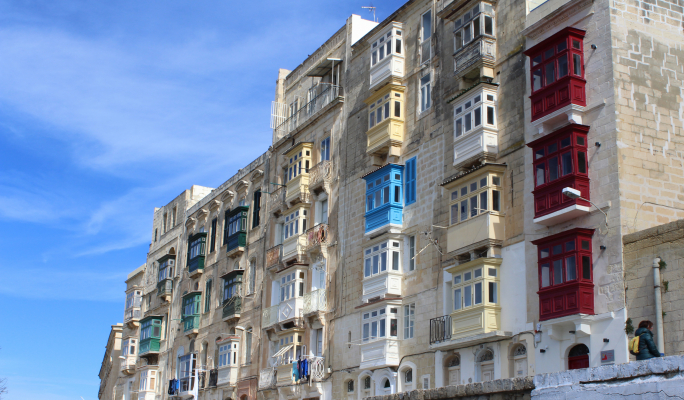By Igor Patrick
Copyright scmp

Former Ecuadorian president Lenin Moreno on Tuesday denounced as “a farce” the bribery charges that prosecutors say link him and his family to US$76 million in payments from a Chinese state builder that managed part of one of the biggest South American projects in Beijing’s global Belt and Road Initiative.
Lenin insisted the accusations are a political vendetta orchestrated by former president Rafael Correa, under whose government the controversial Coca Codo Sinclair hydroelectric plant was contracted and built.
The rivalry between the two has dominated Ecuador’s politics for nearly a decade, as Moreno was elected in 2017 as Correa’s chosen successor but quickly distanced himself from his mentor.
Correa, who now lives in Belgium, was later sentenced in absentia for corruption and has accused Moreno of betrayal.
In a statement from Paraguay, where he now lives, Moreno said the bribery case was nothing more than retaliation.
“This is political persecution disguised as justice. They [Correa allies] do not forgive electoral defeats or the investigations that curbed their influence in Ecuador,” he wrote.
Moreno argued that the accusations rely on “old family acquaintances” with contractors and do not prove any wrongdoing.
The denials came after Ecuador’s attorney general formally presented new charges on Monday against Moreno, his wife, daughter, two brothers and other associates of receiving illicit payments from Sinohydro, the Chinese company that built the dam.
Prosecutors alleged that between 2009 and 2018 the firm channelled US$76 million in bribes disguised as consultancy fees. A judge must now decide whether the case proceeds to trial.
According to investigators, Moreno and his wife allegedly benefited by US$547,000 in housing and furniture.
His daughter, Irina, received US$52,000, while brothers Guillermo and Edwin collected US$10,000 and US$387,000. A sister-in-law is said to have obtained US$15,000.
The largest sums allegedly went to businessman Conto Patino, a close friend of Moreno, who prosecutors say received about US$44 million.
Moreno insisted he had no authority over the project.
“My participation was null,” he said. “The contract was signed, financed and executed under Correa’s government. As vice-president, I did not control ministries or the electricity sector.”
He added that responsibility lay with Correa’s then deputy, Jorge Glas, who oversaw strategic sectors and is now in prison for corruption.
Coca Codo Sinclair was conceived as a cornerstone of Ecuador’s energy independence. The Andean nation of 18 million people long relied on imported fuel and frequent power shortages.
Built between 2010 and 2016 with a US$1.7 billion loan from China’s Eximbank under the Belt and Road Initiative, the plant was constructed by Sinohydro and inaugurated with fanfare by Correa and visiting Chinese President Xi Jinping. With 1,500 megawatts of capacity, it was supposed to generate a third of the country’s electricity.
Technical and environmental problems quickly overshadowed those ambitions. More than 7,600 cracks in turbine distributors were reported in 2015.
Another assessment released in July 2022 increased that number to 17,000, which officials say Sinohydro concealed before the plant opened. The dam has also been linked to a rare process of regressive erosion in the Coca River.
In 2020, Ecuador’s largest waterfall collapsed and the erosion front has advanced upstream, threatening the dam’s intake and rupturing oil pipelines that spilled crude into rivers used by Indigenous communities.
Costs ballooned from under US$800 million in early studies to more than US$3.2 billion, including transmission lines.
Critics in Ecuador said the overpricing was tied to bribes while construction quality was sacrificed, and the national electric company has never formally accepted the dam from Sinohydro, reflecting ongoing disputes over defects.
For years the plant underperformed, operating below capacity. Only in September 2025 did it return to its full 1,500 megawatts after extensive repairs, but experts warn its useful life may be 15 years instead of the planned 50.
The corruption probe dates back to the 2019 Ina Papers leaks, which suggested that Moreno’s family controlled offshore firms in Panama that acquired property in Spain. Local journalists linked the money to Coca Codo Sinclair contracts, but Moreno denied any wrongdoing.
In 2023, Attorney General Diana Salazar charged Moreno and more than 30 others with bribery. She described a “corruption structure” around the dam that funnelled illicit payments through intermediaries.
Moreno called the process “a montage” and said it was designed to deflect attention from “the real beneficiaries of the contract”.
China has since avoided direct comment on the bribery allegations, framing them as Ecuador’s internal affair. Instead, PowerChina, the parent company of Sinohydro, reached a settlement with Quito in June to end arbitration over construction defects.
The company agreed to pay Ecuador US$400 million and assume operation and maintenance of the dam, while the state retains ownership.
Officials said the deal secured energy supply and funds renewable projects, but critics argued that putting the facility back under the control of its builder raises questions of accountability.
Moreno has lived in Paraguay since 2021, working as a commissioner for disability issues at the Organisation of American States. If convicted of bribery, he could face 3 to 10 years in prison, though extradition from Paraguay is seen as unlikely.



